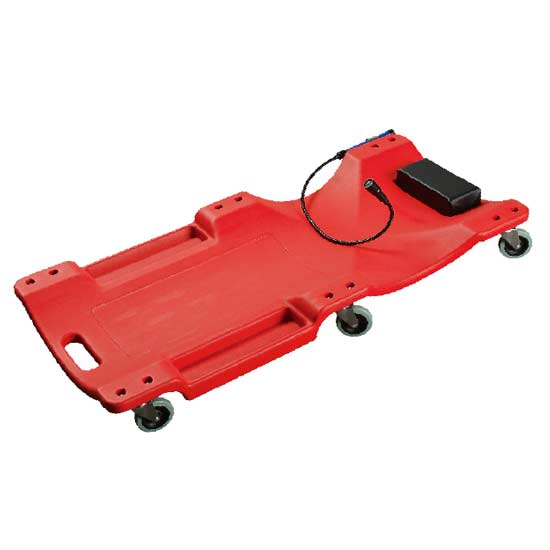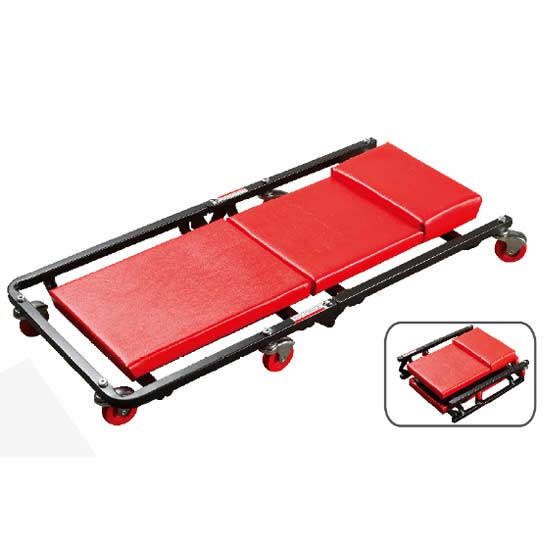Which Car Creeper Should You Choose?
Choosing the right car creeper is essential for comfortable and efficient automotive work. A car creeper, also known as a mechanic's creeper, is a tool designed to provide a mobile and comfortable platform for mechanics and DIY enthusiasts to work underneath vehicles. Here are key factors to consider when selecting the right car creeper:
1. Material and Construction
The material and construction of the creeper greatly affect its durability and performance. The two most common materials for creepers are:
Metal: Metal creepers are sturdy and durable, making them ideal for heavy-duty use. They often have a padded surface for comfort.
Plastic: Plastic creepers are lightweight and more affordable. While they may not be as durable as metal ones, they are suitable for occasional use.
Consider the type of work you'll be doing and choose a creeper with the appropriate material for your needs.
2. Wheel Type
Car creepers come with different types of wheels, which can affect mobility and stability:
Caster Wheels: These swivel in all directions, providing excellent maneuverability. Caster wheels are suitable for working in tight spaces.
Fixed Wheels: Fixed wheels only move in one direction, which can limit maneuverability but provide stability. They are suitable for even surfaces.
Consider the type of flooring in your workspace and the need for maneuverability when choosing the wheel type.
3. Comfort and Padding
Working under a vehicle can be physically demanding, so comfort is essential. Look for a creeper with adequate padding on the surface and a comfortable headrest or cushion for your neck and head. The padding should be thick enough to provide support during extended use.
4. Length and Width
The size of the creeper matters, especially if you're a taller individual or need extra space to move around comfortably. Consider the length and width of the creeper to ensure it accommodates your body size and allows you to work without restrictions.
5. Weight Capacity
Each creeper has a weight capacity that you should not exceed. Ensure the creeper you choose can safely support your weight and the weight of any tools or equipment you'll have with you during work.
6. Adjustable Features
Some creepers come with adjustable features that allow you to customize your working position. Look for a creeper with adjustable headrests, backrests, or height if these features are important to you.
7. Ease of Maintenance
Consider how easy the creeper is to clean and maintain. If it's challenging to keep clean or prone to damage from automotive fluids or chemicals, it may not be the best choice for a mechanic's creeper.
8. Budget
Your budget will also play a role in your choice. While high-quality, feature-rich creepers can be more expensive, they often offer better durability and comfort. Consider your budget and prioritize features that are most important to you.
9. Reviews and Recommendations
Before making a final decision, read reviews from other users and seek recommendations from fellow mechanics or automotive enthusiasts. They can provide valuable insights into the performance and durability of specific creepers.
In summary, choosing the right car creeper involves considering factors such as material, wheel type, comfort, size, weight capacity, adjustable features, maintenance, budget, and user feedback. By carefully evaluating these factors, you can select a creeper that suits your specific automotive work needs and provides comfort and convenience during your projects.
282
0
0
All Comments (0)
If you are interested in sending in a Guest Blogger Submission,welcome to write for us!




Comments